Best Ovarian Cancer Treatment In Hyderabad
Get Clinically Successful Advanced Treatments for Ovarian Cancer From Experienced Cancer Doctors at Onco Cancer Centres, Hyderabad
- Best-In-Class Services & Quality Treatments
- Same day Investigation + Treatment Initiation
- Dedicated, Advanced Oncology Facility
- Affordable Diagnostics
- Low-cost Advanced Treatment Options With Zero-cost EMI
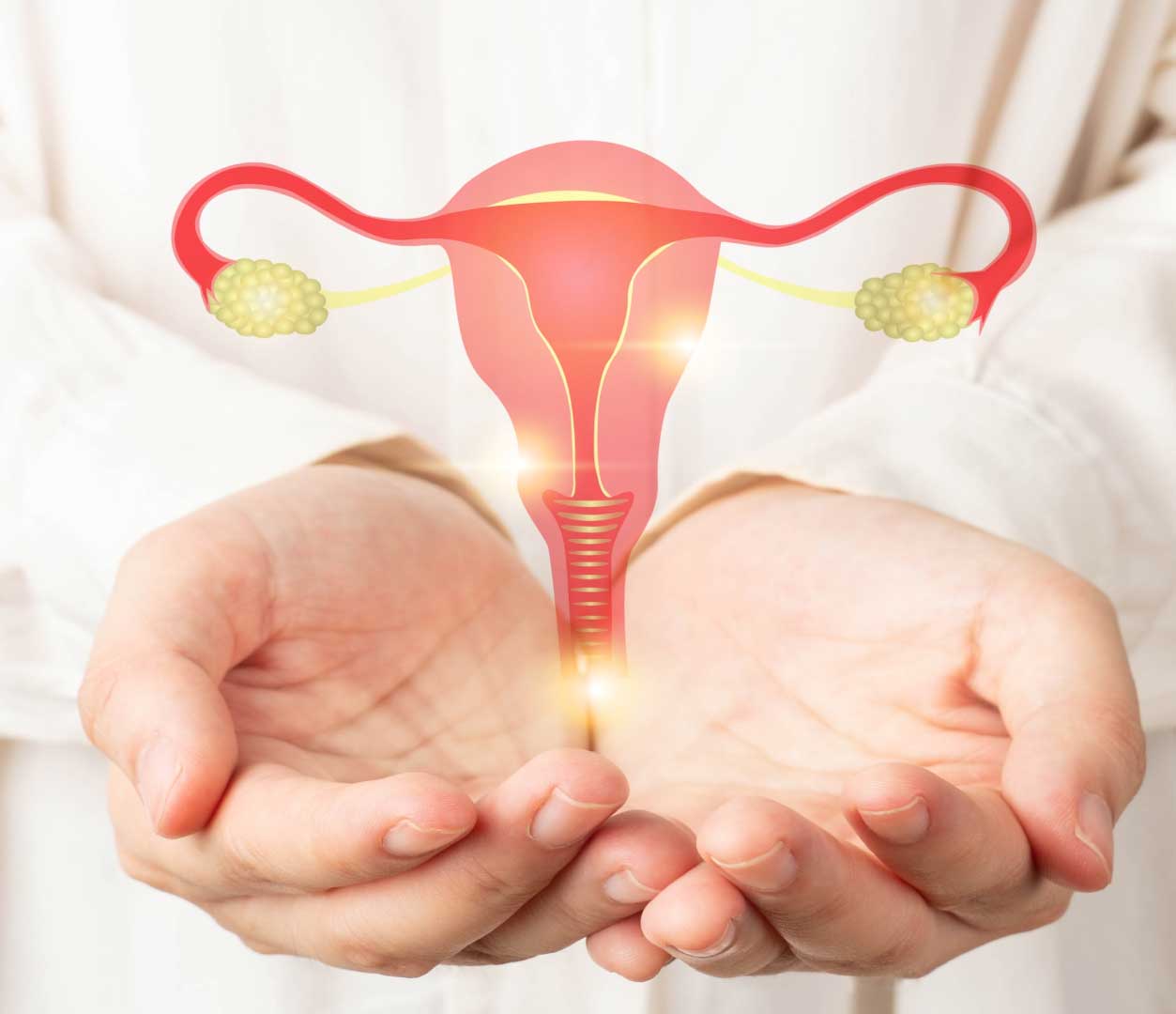

Rated 5/5 Reviews
What is Ovarian Cancer?
Ovaries are part of the female reproductive system, responsible for producing eggs (ovum) and female hormones (estrogen and progesterone). Ovarian cancer starts when ovarian cells begin to grow abnormally. One ovary is located on each side of the uterus and cancer can affect one or both ovaries. It is the third most common gynecological cancer and mostly affects women over the age of 40. Ovarian cancer is divided into 3 types based on the type of ovarian cells affected: epithelial cancer (the most common), malignant germ cell tumours and stromal cells (the rarest).
Our Team of Top Ovarian Cancer Specialists in Hyderabad

Dr. Rakesh Shankar Goud
MBBS, DNB-Radiation Oncology
Dr. Abid Ali Mirza
Surgical Oncologist
Dr. M A Suboor Shaheerose
Medical Oncologist
Dr. Amit Jotwani
CoFounder, CMO, Chief Oncologist
Dr. Shikhar Kumar
Consultant Medical Oncologist
Dr. Rakesh Shankar Goud
MBBS, DNB-Radiation Oncology
Dr. Abid Ali Mirza
Surgical Oncologist
Dr. M A Suboor Shaheerose
Medical Oncologist
Dr. Amit Jotwani
CoFounder, CMO, Chief Oncologist
Dr. Shikhar Kumar
Consultant Medical Oncologist
Dr. Rakesh Shankar Goud
MBBS, DNB-Radiation Oncology
Dr. Amit Jotwani
CoFounder,CMO,Chief Oncologist
MD (Radiotherapy), FHPRT, SBRT(Netherlands), AMPH

Dr. Shikhar Kumar
MD, DNB,DM – Medical oncology, ECMO
MD (Radiotherapy), FHPRT, SBRT(Netherlands), AMPH

Dr. Rakesh Shankar Goud
MBBS, DNB-Radiation Oncology
MD (Radiotherapy), FHPRT, SBRT(Netherlands), AMPH
Take Advantage of Our Onco Cancer Centers
- Multi-disciplinary care
- Hassle-free consultation
- Doctor consultation for more than 30 minutes
- No IP charges for chemotherapy
- Advanced technology like scalp cooling, leg massager at the center
- Tele-consultations available with oncologists around the country
- Second opinions offered free of cost
- Complementary diet plans
- Discharge process Less than 1 hour
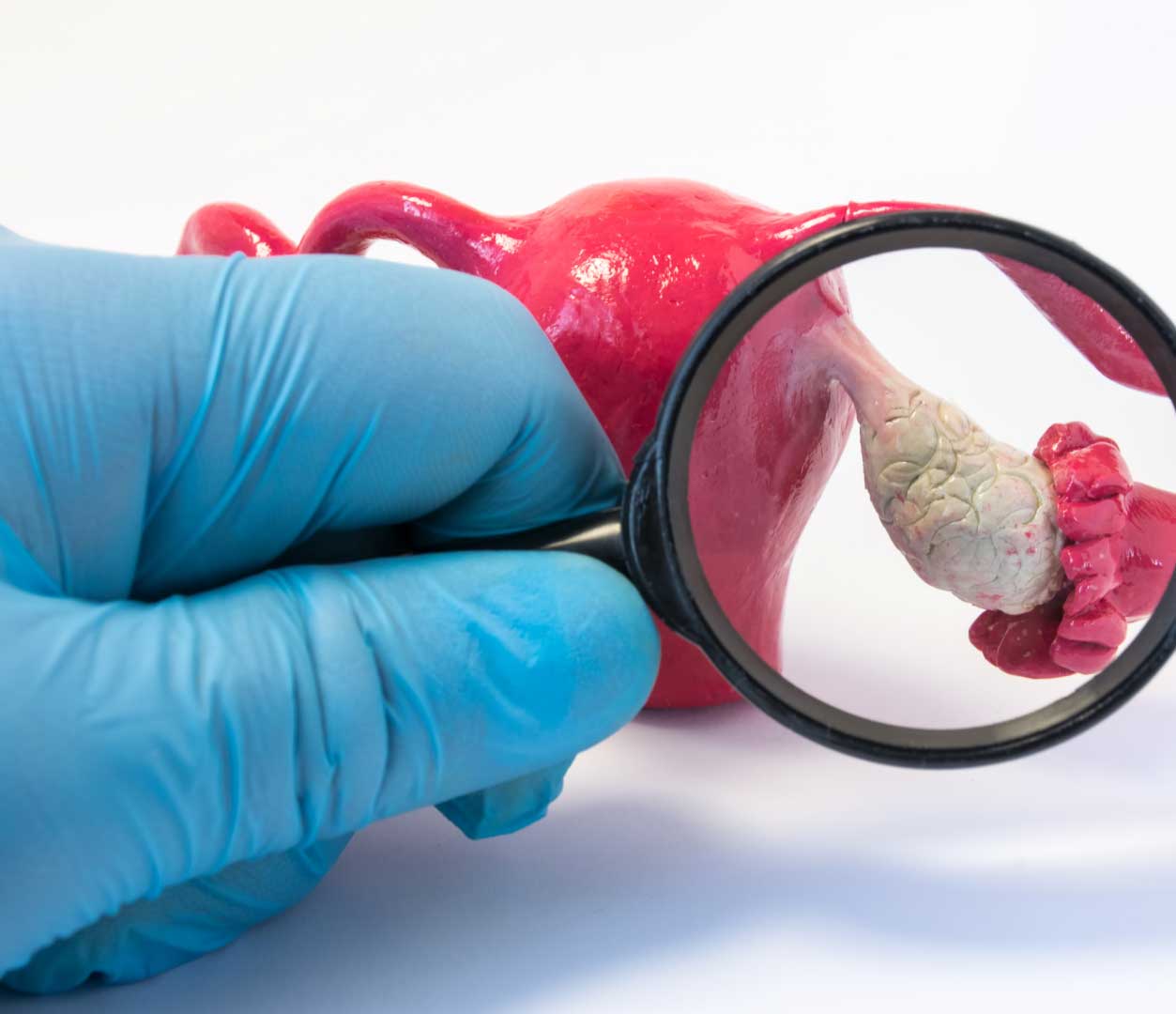
Signs and Symptoms of Ovarian Cancer

- Feeling full even after small meals
- Bloating
- Frequent urination or urgency to urinate
- Pain in the abdomen or pelvis
- Changes in bowel habits
- Lower back pain
- Pain during sexual intercourse
- Presence of fluid or lump in the abdomen
- Indigestion
- Fatigue
- Irregular periods
- Weight loss
- Vaginal bleeding
- Back pain that persists or worsens
Consult an Gynecologist and Get Examined
Diagnostic Tests for Ovarian Cancer in Hyderabad
Certain tests that help Diagnose ovarian cancer:
Pelvic exam: This is a regular screening test for females. In this test, the doctor inserts gloved fingers into the vagina and with another hand presses the abdomen to test the size, shape, and consistency of the ovaries or uterus and also visually examines the external genitalia, vagina, cervix, and rectum.
Transvaginal ultrasound (TVUS): In this test, the doctor inserts an ultrasound wand into the vagina and examines the uterus, fallopian tubes, and ovaries to see if there are any tumours.
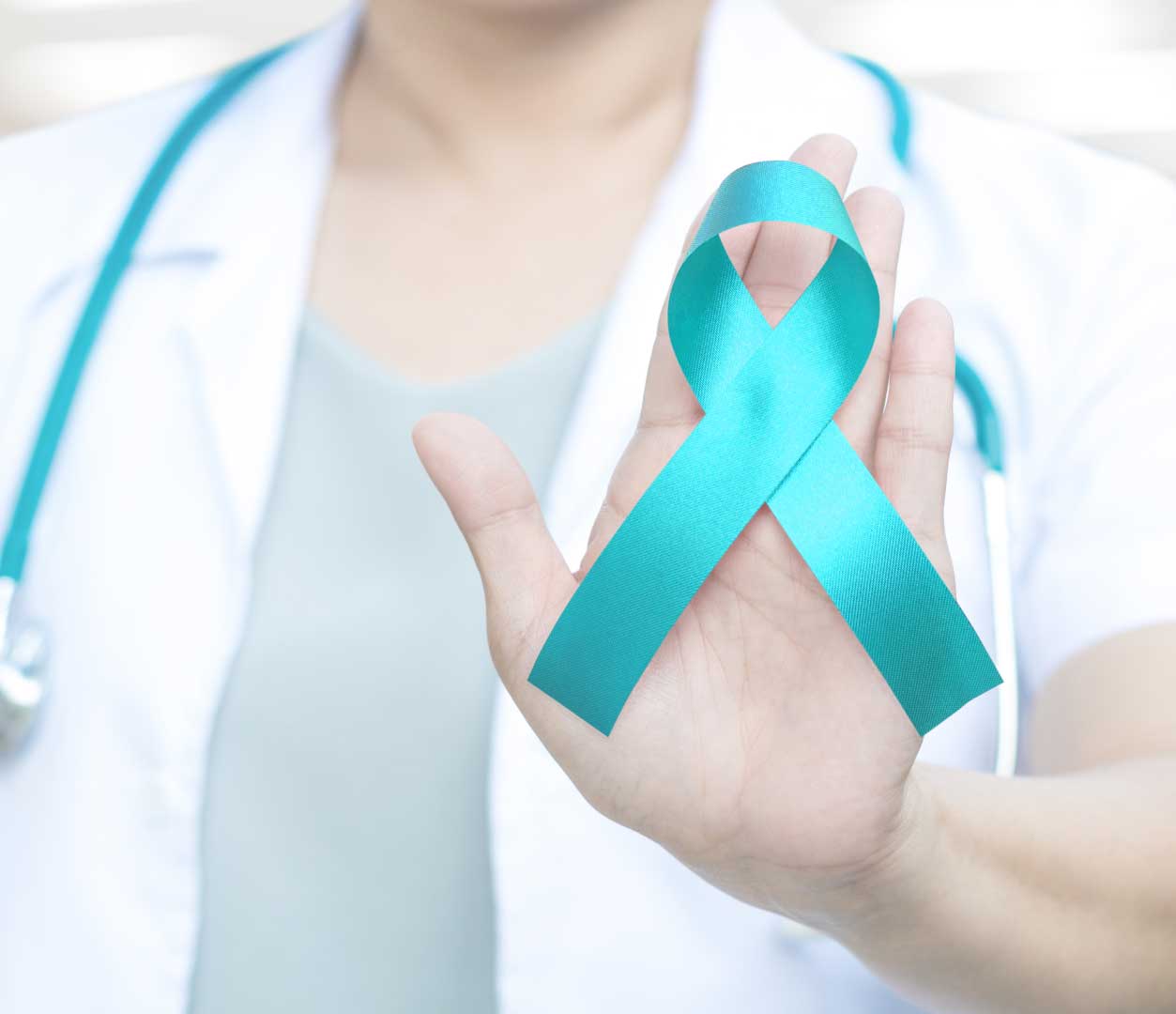
CA-125 blood test: CA-125 is a protein in the blood that appears on the surface of ovarian cancer cells. High levels of CA-125 can be an indication of ovarian cancer in some cases. But these levels can also be due to endometriosis or pelvic inflammatory disease. Therefore, this test doesn’t accurately diagnose ovarian cancer.
Biopsy: This is a reliable way to diagnose and stage ovarian cancer. In this test, a small amount of tissue sample is collected by inserting a thin needle into the ovaries or abdomen and that will be sent to the laboratory for analysis of cancer cells.
Genetic testing: This can help detect inherited DNA changes and helps your doctor prescribe the right treatment. In this test, a blood sample is collected and tested to look for any genetic mutations that can cause ovarian cancer.
Imaging tests: If you are diagnosed with ovarian cancer, imaging tests like chest X-ray, CT, and PET scan are performed to know its extent of spread.
Get discount on Diagnostic tests
Advanced Procedures for Ovarian Cancer Treatment in Hyderabad
Surgery for Ovarian Cancer
Surgery is recommended for early-stage and also advanced-stage ovarian cancers in combination with chemotherapy. In early-stage ovarian cancer, surgery is done to remove the affected ovary and its fallopian tube. If cancer has affected both ovaries, then both ovaries are removed along with their fallopian tubes. In both of these situations, you may still be able to conceive.
In extensive-stage ovarian cancer, surgery involves removal of both ovaries, uterus if affected, nearby lymph nodes, and some surrounding healthy abdominal tissue. In this case, you will not be able to conceive. Chemotherapy can be given before or after ovarian cancer surgery for about 3 to 6 cycles.
If surgery is not possible, Doctor will recommend Chemotherapy, Radiation therapy, Hormone therapy, Immunotherapy, Targeted therapy to shrink the tumour.
Talk To Our Expert Neuro Oncologist
Cost of Ovarian Cancer Treatment in Hyderabad
The cost of ovarian cancer treatment may vary depending on hospital facilities, medical expertise, pre-treatment costs (consultations, blood tests, and scans), type of treatment you are receiving, and post-treatment costs (follow-up consultation for periodic checks including tests, scans, rehabilitation, and medications).
To know the cost details for your Ovarian cancer, you can call us at 8008575405 and we will give you an estimate
Approximately, the cost of ovarian cancer treatment in Hyderabad ranges from INR 2,00,000 to INR 10,00,000.
Get Best Quote For Ovarian Cancer Treatment In Hyderabad
Clinical Experience & Patient Stories
We are always pleased to hear positive feedback about Onco Cancer Centres. Here are some of the testimonials we’ve received from our Patients
Frequently Asked Questions on Ovarian Cancer Treatment in Hyderabad
There is insufficient evidence on the causes of ovarian cancer. But there are some known risk factors that increase our chances of developing ovarian cancer. They are:
◉ Smoking
◉ Inherited or acquired gene mutations
◉ Individual’s age (risk of getting ovarian cancer increases with age)
◉ Radiotherapy to the pelvic area
◉ Being overweight
◉ History of breast or bowel cancer
◉ Endometriosis
◉ Diabetes
◉ Early menarche
◉ Polycystic ovarian disease (PCOD)
◉ Never had a pregnancy
◉ Never used any contraception
◉ Infertility
◉ Taking hormone replacement therapy
If you have a family history of breast cancer, colorectal cancer, thyroid cancer, uterine cancer, or ovarian cancer-causing gene mutations, ask your doctor for genetic testing. This will help you estimate your risk of cancer.
After being diagnosed with ovarian cancer, the next important step is staging. It helps your doctor find the best way to treat your ovarian cancer. By considering the diagnostic test results, imaging scans, your doctor can confirm the stage for your ovarian cancer and will prepare the best treatment plan accordingly. A stage of ovarian cancer indicates size, location and severity of cancer. Ovarian cancer is categorized into 4 stages using the FIGO system or AJCC system.
Stage I: Cancer has affected either one or both ovaries. Sometimes stage I also includes rupture of the outer lining of ovaries, presence of cancer cells outside the ovaries and also in the peritoneal cavity fluid.
Stage II: Cancer has affected either one or both ovaries and has spread outside the ovaries and into the pelvic region. Sometimes stage II includes rupture of the outer layer of the ovaries and spread of ovarian cancer to the uterus and fluid of the peritoneal cavity.
Stage III: Cancer has affected one or both ovaries and has spread to the pelvis, abdomen, and nearby lymph nodes, and rarely to the small intestine.
Stage IV: Cancer has spread beyond the abdomen and to distant parts of the body such as the lungs or liver.
Ovarian cancer can also be described in 3 grades, depending on how abnormally cancer cells are growing. Grade 1(Low-Grade) denotes that cancer cells are found only in ovaries and look almost like normal cells and are less likely to spread, while grades 2 and 3 (High-Grade) indicate that cancer cells are growing abnormally and are more likely to spread and metastasize.
The duration of ovarian cancer treatment is approximately 6 to 12 months or longer depending upon the type of treatment you are receiving and how well your cancer is responding to the treatment. Your doctor may extend the treatment duration if your cancer is suspected to be recurring.
Ovarian cancer shows no noticeable symptoms for early detection. Therefore, it spreads from the ovaries to the pelvis within 3 to 6 months and can grow quickly into an advanced stage within a year. This spread also depends on the nature of the ovarian cells. High-grade ovarian cancers grow quickly and spread fast while low-grade ovarian cancers grow slowly.
If you have symptoms suggestive of ovarian cancer, your doctor may perform a pelvic exam, CA-125 blood test, and transvaginal ultrasound scan to examine the uterus, fallopian tubes, and ovaries by inserting a thin ultrasound wand. If the results of these tests are suspicious for ovarian cancer. Further imaging tests (CT scan, MRI scan, and PET scan), biopsy, and genetic testing are performed.
Women over the age of 60 and women with a family history of breast cancer, bowel cancer, or ovarian cancer caused by genetic mutations are at increased risk of ovarian cancer. Because the risk of ovarian cancer increases with age and there are chances of genetic mutations being inherited. so it is advisable to consult a doctor and go for screening.
Ovarian cancer mostly occurs in women over age 60 years. Rarely, young women of age below 40 are affected with ovarian cancer. Studies are saying that the risk of ovarian cancer increases with age.
Yes, ovarian cancer can cause pain in the abdomen, lower back, or mid-hip area. The intensity of pain increases as cancer progresses. Consistent pain is a common symptom of stage 3 and stage 4 ovarian cancers. Ovarian cancer treatments like chemotherapy, radiotherapy, or surgery can also cause pain while destroying the cancer cells.
CA-125 blood test and Transvaginal ultrasound (TVUS) scan are done initially. Your doctor may also recommend imaging tests, genetic tests, and a biopsy to identify the type and stage of ovarian cancer and to choose the right treatment.
Ovarian cancer usually requires 3 to 6 cycles of chemotherapy. Depending on the type and stage of ovarian cancer, chemotherapy is given once every 3 to 4 weeks. This 3 to 4 weeks timeline is one cycle, which means it takes around 6 months to complete the treatment. Chemotherapy is given as an outpatient treatment (no need to hospitalize) and each dose will take around 3 to 4 hours.
Ovarian cancer is not terminal (fatal) in all cases. On average, ovarian cancer patients at any stage can survive for 5 years. This survival can be up to 10 years or less than 1 year depending on the patient’s condition and the outcome of their treatment. Stage 4 cancer cannot be cured, but it can be treated to help prolong the lives of cancer patients to some extent.
Related Blogs
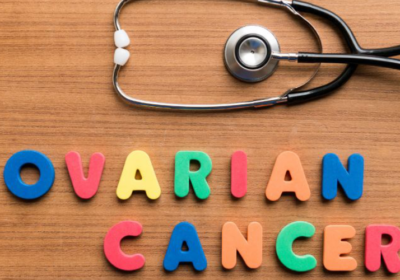
Top 8 Questions to Ask About Ovarian Cancer
Ovarian cancer is the fifth most common cancer in women and the most common cause of gynecologic…
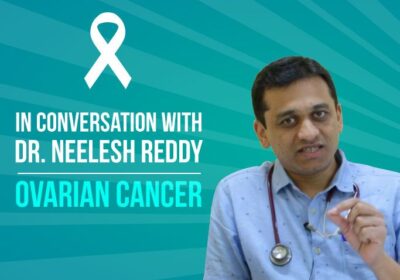
Dr Neelesh talks about ovarian cancer in detail
Dr Neelesh Reddy is a senior medical oncologist at Onco.com. Trained at one of the premium institutes…
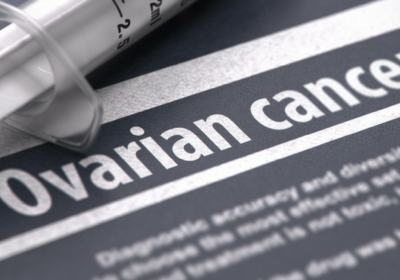
Can Women Really “Inherit” Ovarian Cancer?
BRCA changed everything since it first came into the picture a couple of decades back. Ranging…

What Next After Ovarian Cancer: Post-treatment Care
Ovarian cancer is the fifth most common cancer in women and the most common cause of gynecologic…

Top 8 Questions to Ask About Ovarian Cancer
Ovarian cancer is the fifth most common cancer in women and the most common cause of gynecologic…

Dr Neelesh talks about ovarian cancer in detail
Dr Neelesh Reddy is a senior medical oncologist at Onco.com. Trained at one of the premium institutes…

Can Women Really “Inherit” Ovarian Cancer?
BRCA changed everything since it first came into the picture a couple of decades back. Ranging…

What Next After Ovarian Cancer: Post-treatment Care
Ovarian cancer is the fifth most common cancer in women and the most common cause of gynecologic…

Top 8 Questions to Ask About Ovarian Cancer
Ovarian cancer is the fifth most common cancer in women and the most common cause of gynecologic…

Dr Neelesh talks about ovarian cancer in detail
Dr Neelesh Reddy is a senior medical oncologist at Onco.com. Trained at one of the premium institutes…

Can Women Really “Inherit” Ovarian Cancer?
BRCA changed everything since it first came into the picture a couple of decades back. Ranging…

